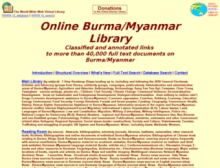Resource information
In 2003 we started to undertake a project we had long talked about and planned, namely to record visually the recollections and views of some of the individual scholars and practitioners who initiated the field of conflict analysis and peace research in the 1950s and 1960s....
Many of these “parents of the field” were now in their 70s and 80s, but most were still working and researching. Some were continuing to teach the next generation of students in the field, while others were still pursuing the ideal - first enunciated by one of the pioneers from the 1940s, Kurt Lewin - of becoming “practical theorists,” that is, scholars who actually used some of their skills and knowledge to help resolve conflicts in the real world.
The original idea was limited in scope, namely to video-tape interviews with 15 'key' figures in the development of “conflict and peace research.” The issue of what to call the field [or the discipline] became one of the questions on which we sought enlightenment, as it rapidly became clear that the early days had seen much discussion about what the new field of study should be called, what its main focus should be, and how it might best have an impact on the world of problems and policy...".....Interviews with
Chadwick Alger,
Landrum Bolling,
Elise Boulding,
John Burton,
Anthony De Reuck,
Morton Deutsch,
Asbjorne Eide,
Roger Fisher,
Johan Galtung,
Walter Isard,
Herbert Kelman,
Chris Mitchell,
James O'Connell,
Betty Reardon,
Paul Rogers,
Gene Sharp,
J. David Singer,
Paul Wahrhaftig,
Ralph White,
Peter Wallensteen.


